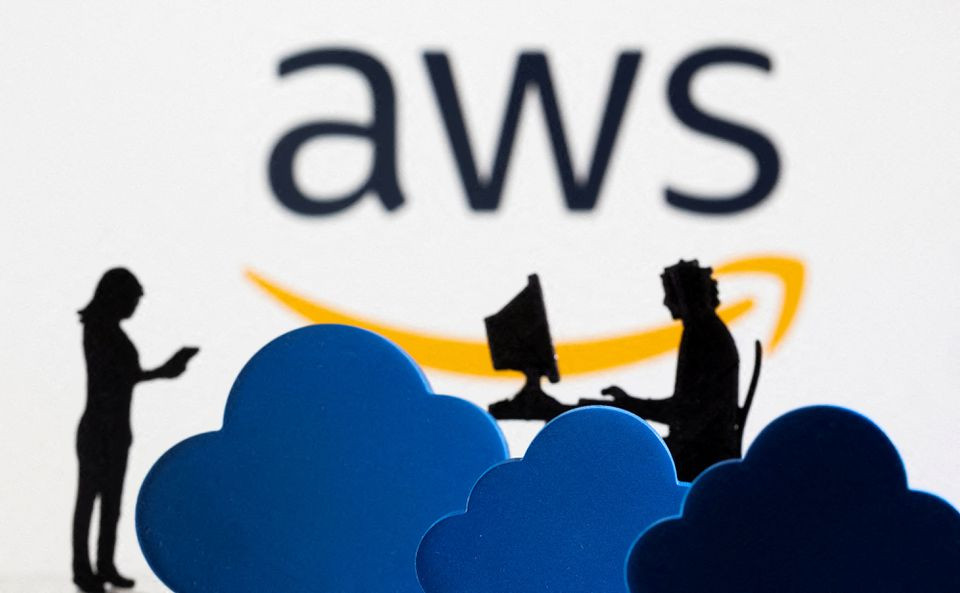
Amazon's AWS appeals to corporate customers with new chatbot, AI safety measures
Amazon is trying to lure big corporate customers to it AWS cloud computing service with a new chatbot for businesses, and by offering to guard them against legal and reputational damage that can come from the output of artificial intelligence. The new chatbot, called Q, is designed to help with productivity by helping workers summarize important documents and support tickets and chat via communication apps such as Slack, the company announced at its annual cloud computing conference Tuesday in Las Vegas. The software can also automatically make changes to businesses source code, speeding development, the company said. The new software arrived roughly a year after OpenAI’s ChatGPT burst onto the scene, setting off a frenzy of investment in generative AI startups. Alphabet and others have announced their own chatbots, which can have human-like conversations with users to help with daily tasks. AWS CEO Adam Selipsky, at Amazon’s annual cloud computing conference in Las Vegas, announced a new safeguard against objectionable content on generative AI applications, called Guardrails for Bedrock. The service allows users to filter out harmful content, he said. Because generative AI is trained on publicly available content, offensive words or other objectionable content can slip through into results from users’ prompts. That is particularly problematic for younger users, in times of global conflict or during elections when generative AI’s output in search results can influence opinion. Safety advocates have cautioned that generative AI could operate out of the control of its human creators and pump out increasingly dangerous content or operate entire systems without oversight. In particular, they worry about the software putting influential – and convincing – content on social media sites like X and Facebook. Selipsky said the new service was important for customers to put limits they see fit on the generative AI they use. “For example, a bank could configure an online assistant to refrain from providing investment advice,” said Selipsky. “Or, to prevent inappropriate content, an e-commerce site could ensure that its online assistant doesn’t use hate speech or insults.” As part of its appeal to corporations, Amazon said the Q chatbot will offer businesses limits so that it can keep sensitive data from employees who should not have access to it. Pricing will start at $20 per user, per year. Also at the conference, Amazon announced it would indemnify its customers against lawsuits based on the misuse of copyrighted materials. Stock photography company Getty Images, for instance, sued Stability AI earlier this year, alleging it scraped its website for images without permission. Guardrails for Bedrock is in limited preview today, Amazon said. The Seattle company did not provide additional details about its indemnification policy.

Amazon is trying to lure big corporate customers to it AWS cloud computing service with a new chatbot for businesses, and by offering to guard them against legal and reputational damage that can come from the output of artificial intelligence. The new chatbot, called Q, is designed to help with productivity by helping workers summarize important documents and support tickets and chat via communication apps such as Slack, the company announced at its annual cloud computing conference Tuesday in Las Vegas. The software can also automatically make changes to businesses source code, speeding development, the company said. The new software arrived roughly a year after OpenAI’s ChatGPT burst onto the scene, setting off a frenzy of investment in generative AI startups. Alphabet and others have announced their own chatbots, which can have human-like conversations with users to help with daily tasks. AWS CEO Adam Selipsky, at Amazon’s annual cloud computing conference in Las Vegas, announced a new safeguard against objectionable content on generative AI applications, called Guardrails for Bedrock. The service allows users to filter out harmful content, he said. Because generative AI is trained on publicly available content, offensive words or other objectionable content can slip through into results from users’ prompts. That is particularly problematic for younger users, in times of global conflict or during elections when generative AI’s output in search results can influence opinion. Safety advocates have cautioned that generative AI could operate out of the control of its human creators and pump out increasingly dangerous content or operate entire systems without oversight. In particular, they worry about the software putting influential – and convincing – content on social media sites like X and Facebook. Selipsky said the new service was important for customers to put limits they see fit on the generative AI they use. “For example, a bank could configure an online assistant to refrain from providing investment advice,” said Selipsky. “Or, to prevent inappropriate content, an e-commerce site could ensure that its online assistant doesn’t use hate speech or insults.” As part of its appeal to corporations, Amazon said the Q chatbot will offer businesses limits so that it can keep sensitive data from employees who should not have access to it. Pricing will start at $20 per user, per year. Also at the conference, Amazon announced it would indemnify its customers against lawsuits based on the misuse of copyrighted materials. Stock photography company Getty Images, for instance, sued Stability AI earlier this year, alleging it scraped its website for images without permission. Guardrails for Bedrock is in limited preview today, Amazon said. The Seattle company did not provide additional details about its indemnification policy.

